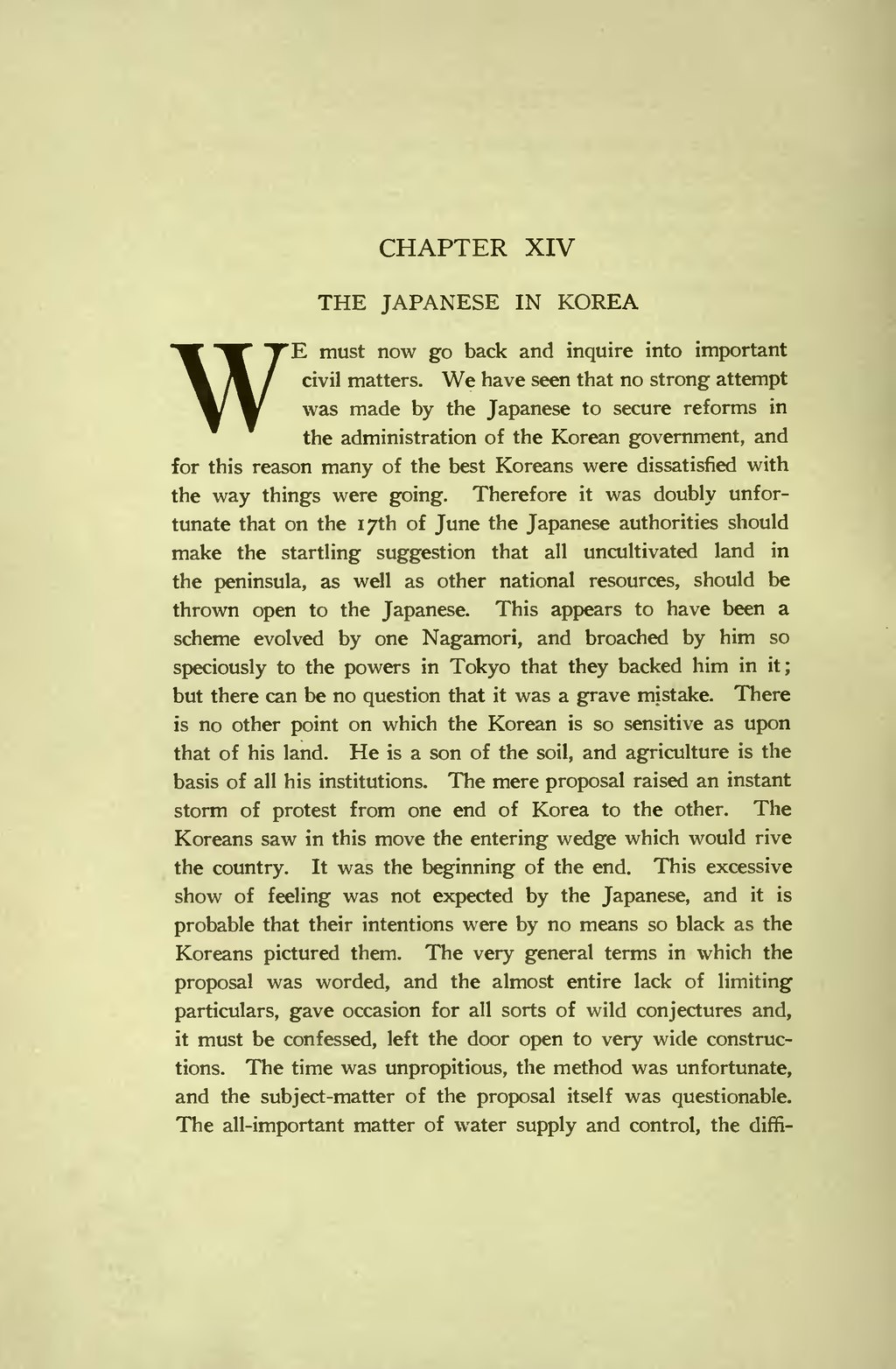CHAPTER XIV
THE JAPANESE IN KOREA
WE must now go back and inquire into important civil matters. We have seen that no strong attempt was made by the Japanese to secure reforms in the administration of the Korean government, and for this reason many of the best Koreans were dissatisfied with the way things were going. Therefore it was doubly unfortunate that on the i7th of June the Japanese authorities should make the startling suggestion that all uncultivated land in the peninsula, as well as other national resources, should be thrown open to the Japanese. This appears to have been a scheme evolved by one Nagamori, and broached by him so speciously to the powers in Tokyo that they backed him in it; but there can be no question that it was a grave mistake. There is no other point on which the Korean is so sensitive as upon that of his land. He is a son of the soil, and agriculture is the basis of all his institutions. The mere proposal raised an instant storm of protest from one end of Korea to the other. The Koreans saw in this move the entering wedge which would rive the country. It was the beginning of the end. This excessive show of feeling was not expected by the Japanese, and it is probable that their intentions were by no means so black as the Koreans pictured them. The very general terms in which the proposal was worded, and the almost entire lack of limiting particulars, gave occasion for all sorts of wild conjectures and, it must be confessed, left the door open to very wide constructions. The time was unpropitious, the method was unfortunate, and the subject-matter of the proposal itself was questionable.
The all-important matter of water supply and control, the diffi-

